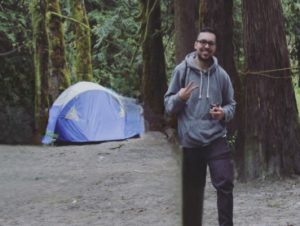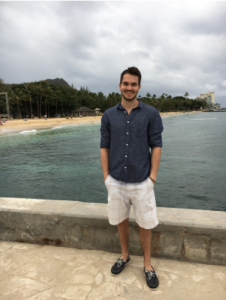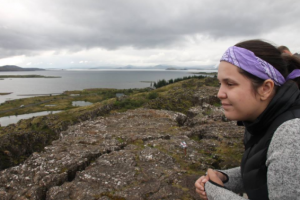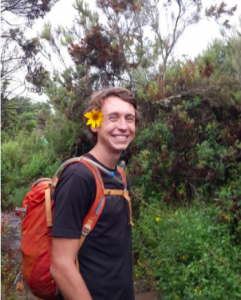“‘Positive people producing fresh insight and growing with the difficulties that may face us rain or shine,” -Group 1.
As November approaches and October wishes us well, the leaves continue changing colour, bringing a new Fall upon us. As the leaves continue to change, so does our outlook and growth as young professionals. As individuals we have come to learn how to support one another, learning how to become more direct and efficient in our communication. While we struggled to find a united voice within the first three weeks, our setbacks continued to push us beyond our comfort zones, demanding and inspiring us to work with what little we had to create.
The last few months have been quite busy, and we have accomplished many tasks, from finding contacts with well-precedent urban agricultural infrastructures to narrowing our over-ambitious ideas; however, our greatest achievement by-far has been the progress of our project proposal:( Vancouver’s Food Strategy and Resilience Proposal). While we continue to learn more about Vancouver’s Food Production and urban agriculture around the world, we encourage you all to experience the beautiful sights Vancouver has to offer.
A Moment of Significance
From the onset of the course, a precedent Professor Will Valley set was that we should ”expect the unexpected” (Valley, 2017). With so little of our project on paper, our group was under the impression that such a lesson would be learned later. However, such an unexpected wrench was thrown into our project right before our proposal presentation in the midst of tutorial. While ironing out details in our proposal of how to quantify the current production ability of downtown Vancouver, Will Valley offered insight as to how we should rearrange the nature of our project altogether. Rather than looking at the “negligible” amount of food Vancouver’s urban core is currently producing, a more relevant project would be to look at its possible production capabilities utilizing newer urban agriculture technologies.
Rolfe et al.’s reflective model allowed us to reflect as a group, and while the experience of considerably failing loomed upon us, it helped us reach beyond our comfort zone and take action (Rolfe et al., 2001).
What?
This event was significant in several ways. Initially, it tested our group’s ability to receive feedback. Our suggestions were not an attack on our work or theoretical concepts, but rather an useful insight to the purpose of this project. Why would the city of Vancouver want information that would quantify something insignificant? Would it not be better to supply them with a vision of the future? These are the initial questions we should have elaborated on, if we had created a pre-mortem in advance during the first three weeks of our design progress (Harford, 2015). Our initial objective was decided based more upon its feasibility rather than utility, being too afraid of failure, we opted for more attainable project. This comment also tested our groups flexibility. To utilize his suggestion we had to be open to momentary change and be decisive with our next actions. The final proposal was due in only two days. Work had to be redone starting from the goal of the project and onwards. Our team had to quickly brainstorm these ideas and delegate how this revision would be accomplished in such a short time frame.
At first, we felt defeated. We did not want to fail, and we were enthusiastic about finding a feasible project and rolling with it. We agreed we should have communicated more, we needed to own up to our mistakes and take this negative experience as a learning experience.
So what?
We are now on a new trajectory…for the time being. This experience became a lesson, how communication is foundation of any group project. While we all shared the same ultimate goal of succeeding in our Food Production and Resiliency project, we found the commonality of our shortcomings. We all speak English but reciprocate and appreciate different forms of communication and support.
Some members entered this project with more experience than others, thus our communication was doomed from the beginning. We had too many expectations but did elaborate what those expectations were. We aren’t First Years anymore, but that didn’t mean we all completely understood the level of work we wanted from each other. The lack of communication among us proved in our incohesive work, and the passive aggressiveness took its’ tole on our cooperation skills later. We based our actions off the unresponsiveness of others when we should have acknowledged our issues. We all had different expectations of each other, and while we failed to be straightforward in the beginning, in fear of hurting each other’s feelings or being too prideful to explain our own feelings, we are learning now.
We are aware that a curve ball could still thrown at any moment and after seeing the revisions to our submitted proposal, there may still be potential for change and growth. It’s all a work in progress and it’s a learning process we are still adjusting ourselves to as a team. However, having our first turn into uncertainty out of the way, we are more prepared on how to take these curve balls and adapt to change. Our greatest mishap was the direction of our project, yet with active communication as team and the advice of Will Valley and Colin Dring, we came to a consensus. Finally, we were able to flesh out efficient methodologies by clarifying exact tools and actions that would allow us to achieve our objectives. By doing so, we were able to eliminate vague processes and with our time we were able to go over analysis which we will reflect upon. From data collected, we will be able to gather and draw conclusions and finally propose multiple directions that our data could be used in the future to other studies, as well as our own.
Now What?
The setback caused a great deal of concern amongst group members, as we scrambled to define new terms and find different stakeholders for our project before the proposal’s short due date. We struggled, yet we reflected upon previous issues that had led to our initial downfall, and discussed our issues in a safe and respectful place. We acknowledged our poor communication skills and accepted that it ultimately led to our uncooperativeness and incohesiveness. We agreed that to be successful, we needed to be tolerable and clear with our expectations and say what’s on our minds. Vocal members in the group began listening more and quieter members became more vocal when we reminded ourselves of the consequences if we once again failed to communicate and be receptive: wasted time.
As with Keith Jarrett’s electrifying performance at the Cologne opera house (Harford, 2015), we all agreed the updated proposal was a success thanks to the circumstances beyond our control. We were forced beyond our comfort, with less than five days to redo a whole proposal report, we needed to communicate efficiently, without worry of offending each other (like we had originally tried to do). We spoke objectively putting egos aside and following directions of whoever seemed most understanding of Professor Will Valley’s advice. We learned to respectfully tolerate each other’s mistakes. We learned to take action efficiently. During this whole process, we utilized Freakonomics’ podcast, seeing failure as our friend (Cohn, 2015), which empowered us to take a step back from our over-confidence and difficulties by creating a pre-mortem.
We designed a pre-mortem to determine everything that could go wrong during stages of our project. By creating a pre-mortem, we were able to determine probable issues we would encounter this time around with our updated proposal at various stages of the project. Therefore, this allowed us to reduce our over-confidence before the project began and increased the participation of everyone in the group who may have (Cohn, 2015).
Achievements and Improvements: the things we gained
The aftermath of this ordeal taught us how invested we have become in this project, so much that sometimes when we are misunderstood and expectation are not fulfilled we get upset with one another. Through the hardship and pain, especially in editing and condensing of our project’s proposal, we learned to understand each other better. We learned that if our project did not make sense to us, then it would not make sense to our readers (Bradley & Herrera, 2016).
As aforementioned, with our busy timetables, we needed to to further improve our communication in order for everyone to feel comfortable sharing their personal perspectives with our pre-mortem strategies (Harford, 2015). Optimistically speaking, our team has become closer, as proof by our succinct proposal paper. We look forward to executing our proposal, putting our egos aside and communicating more clearly, in a more efficient manner with humble minds and loving hearts (Bradley & Herrera, 2016).
In collaborative projects such as these, we have gained experiences from engaging and having active and efficient group meetings. We have learned to generate concrete plans and strategize upcoming involvement with our stakeholders, who are from New York, Montreal, London and Vancouver. We have also learned how to collect and analyze data which will help generate a better model to improve Vancouver’s food resiliency.
As individuals, we have further developed our leadership, taking ownership of our team’s values and execution of our plan in an efficient manner through time management and leadership skills. We have come to understand and communicate with each other actively, gathering different opinions which has ultimately become the most effective communication skill. With humility and respectful, we have also learned to support each other.
In the future, we continue to hone our skills and continue becoming more tolerant and patient listeners when dealing with our communities stakeholders, as well as our team member’s needs and differences. In hope of helping and executing our plan tactically, and eventually generate a better and uniform food production model to help improve Vancouver’s resilience.
References
Bradley, K., & Herrera, H. (2016). Decolonizing food justice: Naming, resisting, and researching colonizing forces in the movement: Decolonizing food justice. Antipode, 48(1), 97-114. doi:10.1111/anti.12165
Cohn, Gretta. (2015, May 20). Failure Is Your Friend: A Freakonomics Radio Rebroadcast.
Podcast retrieved from: http://freakonomics.com/podcast/failure-is-your-friend-a-freakonomics-radio-rebroadcast/
Harford, Tim. [TED] (2015, September). How frustration can make us more creative. [Video file] Retrieved from:
Rolfe, G., Freshwater, D., Jasper, M. (2001). Critical reflection in nursing and the helping professions: a user’s guide. Basingstoke: Palgrave Macmillan.
Valley, W. (2017). Session 1-Course Introductions:Choosing Your Project. Retrieved from: http://lfs350.landfood.ubc.ca/session-notes/term-1-session-notes/session-1-term-1/#fragment-4d3bc8b75a6f34c952b55f54ea11724a-2






